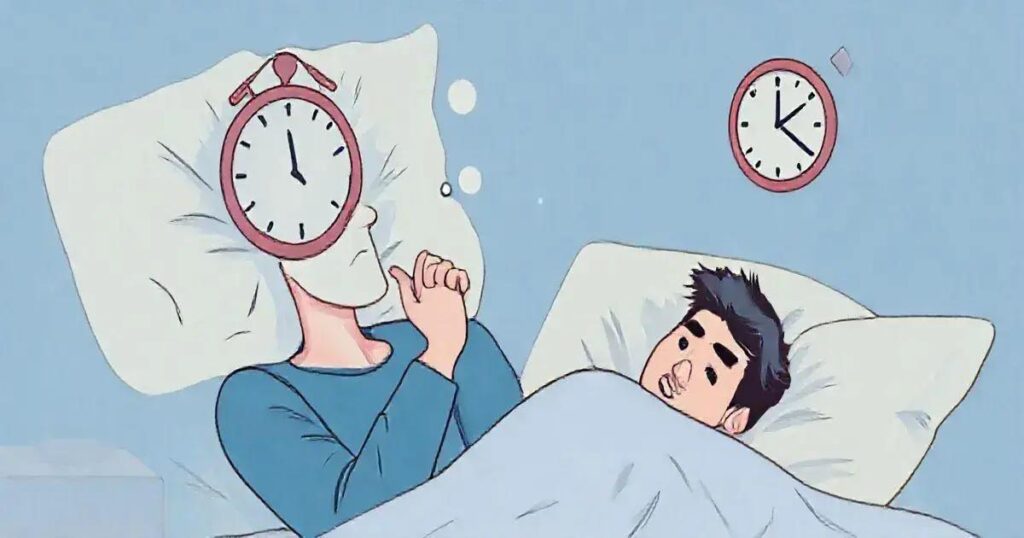Sleep significantly impacts erectile dysfunction as poor sleep can lower testosterone levels and increase stress, contributing to sexual health issues. Establishing a consistent sleep routine, optimizing your sleep environment, and seeking professional help when necessary can improve both sleep quality and erectile function.
How sleep impacts erectile dysfunction is a crucial topic for those wanting to enhance their sexual health. Sleep deprivation can hinder not only your ability to function well but also has serious implications for men’s sexual health. Poor sleep patterns can contribute to erectile dysfunction, which affects intimacy and relationships. In this post, we’ll examine how lack of sleep affects performance, offer tips to improve sleep quality, and discuss when to seek help.
Understanding Erectile Dysfunction

Erectile dysfunction (ED) is a condition that affects many men, leading to difficulties in maintaining or achieving an erection during sexual activity. It can be caused by a variety of factors, including physical health issues, emotional well-being, and lifestyle choices.
Common Causes of Erectile Dysfunction
Several medical conditions can contribute to erectile dysfunction. Heart disease, diabetes, and high blood pressure can impact blood flow and nerve function, leading to ED. Hormonal imbalances, particularly low testosterone levels, can also play a role.
Psychological factors cannot be overlooked either. Anxiety, depression, and stress can affect a man’s ability to become aroused and maintain an erection. The pressure to perform sexually can create a cycle of anxiety, leading to further difficulties.
Lifestyle Factors
Certain lifestyle choices can exacerbate the impact of ED. Smoking, excessive alcohol consumption, and lack of exercise can all contribute to the issue. Inadequate sleep is particularly significant, as poor rest can lead to hormonal fluctuations and increased anxiety.
How Erectile Dysfunction Affects Quality of Life
ED can have wide-ranging effects on a man’s quality of life. It can impact self-esteem and relationships, leading to feelings of inadequacy and frustration. Open communication with partners is essential for maintaining healthy relationships despite these challenges.
Understanding erectile dysfunction is the first step in addressing the problem. Recognizing its causes and impacts can help men and their partners find appropriate solutions and effective treatments.
The Role of Sleep in Sexual Health

Sleep plays a vital role in overall sexual health. Quality sleep is essential for maintaining proper hormone levels and ensuring sufficient energy for sexual activity. During sleep, the body goes through crucial restorative processes that affect mood, sex drive, and performance.
Hormones and Sleep
Testosterone, the primary male hormone that influences libido, is produced during sleep. Studies show that sleep deprivation can lead to reduced testosterone levels, resulting in lower sex drive and erectile issues. Getting enough sleep helps maintain balanced hormone levels, enhancing sexual health.
The Connection Between Sleep Quality and Sexual Desire
Beyond hormones, sleep quality is linked to emotional and psychological well-being. A restful night can lead to better moods, increased energy, and a heightened interest in intimacy. Conversely, poor sleep can increase stress and anxiety, negatively impacting sexual desire.
Impact of Sleep Disorders on Sexual Function
Conditions like insomnia and sleep apnea can worsen erectile dysfunction. Sleep apnea interrupts sleep, leading to tiredness and mood swings. Correcting these sleep disorders may improve sexual function and enhance the quality of life.
How to Improve Sleep for Better Sexual Health
Improving sleep hygiene can significantly affect sexual health. Establishing a regular sleep schedule, creating a calming bedtime routine, and ensuring a comfortable sleep environment can enhance sleep quality. Limiting screen time before bed and avoiding caffeine can also promote better rest.
Understanding the role of sleep in sexual health is essential for addressing erectile dysfunction and maintaining a fulfilling sexual life.
How Sleep Deprivation Affects Performance

Sleep deprivation can significantly affect performance, especially in areas related to sexual health and intimacy. When a person doesn’t get enough sleep, various aspects of physical and mental performance diminish, increasing the likelihood of erectile dysfunction.
Physical Effects of Sleep Deprivation
Fatigue caused by lack of sleep leads to reduced energy levels and stamina. This can limit a person’s ability to engage in sexual activity effectively. Sleep deprivation can also disrupt hormonal balance, particularly testosterone levels, which are crucial for sexual performance.
Cognitive Impacts
Sleep deprivation affects concentration, decision-making, and emotional regulation. Men who are sleep-deprived may feel more anxious or stressed, which can impact their sexual confidence and desire. This can create a negative feedback loop, where anxiety about performance further decreases sleep quality.
Emotional Well-Being
Inadequate sleep can lead to irritability, mood swings, and even symptoms of depression. Emotional instability can hinder intimacy and sexual pleasure, affecting relationships. Maintaining a good emotional state is essential for a satisfying sexual experience.
Signs of Poor Performance Due to Lack of Sleep
Men may notice they are less responsive or have difficulty achieving and maintaining an erection when they haven’t slept well. This decline in performance can lead to frustration and decreased self-esteem.
Recognizing how sleep deprivation affects performance is essential for understanding its role in erectile dysfunction. Improved sleep habits can lead to better overall performance and enhance sexual health.
Tips for Improving Sleep Quality

Improving sleep quality is essential for overall health and can positively impact sexual well-being. Here are some tips to help you get better sleep:
Establish a Regular Sleep Schedule
Go to bed and wake up at the same time every day, even on weekends. This routine helps regulate your body’s internal clock, making it easier to fall asleep and wake up.
Create a Relaxing Bedtime Routine
Engage in calming activities before bed, such as reading a book, taking a warm bath, or practicing meditation. These activities signal to your body that it’s time to wind down, promoting better sleep.
Optimize Your Sleep Environment
Your bedroom should be a sleep-friendly area. Keep the room dark, quiet, and cool. Consider using blackout curtains and white noise machines to block out distractions.
Limit Screen Time Before Bed
Reduce exposure to screens from smartphones, tablets, and TVs at least one hour before bedtime. The blue light emitted by these devices can interfere with your ability to fall asleep.
Avoid Caffeine and Heavy Meals
Limit caffeine and nicotine consumption in the afternoon and evening. Also, avoid heavy or spicy meals close to bedtime, as they can disrupt sleep.
Stay Active During the Day
Regular physical activity can help improve sleep quality. Aim for at least 30 minutes of moderate exercise most days, but avoid vigorous activity close to bedtime.
Seek Professional Help if Needed
If you continue to struggle with sleep despite trying these tips, consider consulting a healthcare professional. Sleep disorders such as insomnia or sleep apnea may require treatment.
Incorporating these strategies can lead to better sleep quality, ultimately benefiting your sexual health and overall quality of life.
Seeking Help for Erectile Dysfunction

Seeking help for erectile dysfunction is a vital step for many men dealing with this condition. It is essential to understand that ED can be a symptom of underlying health issues, and addressing it can lead to improved overall well-being.
When to Seek Help
If you experience persistent difficulties in achieving or maintaining an erection, consult a healthcare professional. It is important to address these concerns sooner rather than later, as ED can affect self-esteem, relationships, and mental health.
Types of Healthcare Providers
Your first point of contact can be a primary care physician. They can evaluate your symptoms and may refer you to specialists, such as urologists or endocrinologists, if necessary. These specialists can provide focused treatment options tailored to your specific situation.
What to Expect During Your Visit
During your appointment, be prepared to discuss your medical history, lifestyle, and emotional health. The healthcare provider may conduct a physical examination and order tests to rule out any medical issues contributing to your ED.
Treatment Options
There are various treatment options available for erectile dysfunction, including oral medications, therapy, lifestyle changes, and, in some cases, surgical interventions. Your healthcare provider will work with you to determine the best approach based on your health and preferences.
Emotional Support
Dealing with erectile dysfunction can be challenging. Seeking counseling or joining support groups can provide emotional support. Open communication with your partner is also crucial to maintaining a healthy relationship despite the challenges of ED.
Being proactive about seeking help can lead to effective treatments and improve your quality of life. Don’t hesitate to talk to a healthcare professional about your concerns.
Understanding the Connection Between Sleep and Erectile Dysfunction
Sleep is an essential component of overall health and plays a crucial role in sexual health. Lack of sleep can directly impact hormone levels, emotional well-being, and overall performance, leading to challenges such as erectile dysfunction (ED).
By recognizing the signs of sleep deprivation, seeking help when needed, and implementing strategies to improve sleep quality, individuals can experience significant benefits to their sexual health. It is important to foster open communication with healthcare providers and partners to address any concerns related to ED.
Prioritizing sleep hygiene and seeking appropriate treatment not only enhances sexual health but also contributes to improved emotional and physical well-being.
FAQ – Frequently Asked Questions about Sleep and Erectile Dysfunction
How does sleep impact erectile dysfunction?
Sleep is crucial for hormone balance and emotional well-being. Poor sleep can lower testosterone levels and increase stress, leading to erectile dysfunction.
What are the signs of sleep deprivation?
Signs include fatigue, irritability, difficulty concentrating, and reduced libido. Persistent sleep issues can also lead to complications like anxiety and depression.
When should I seek help for erectile dysfunction?
If you experience ongoing difficulties with erections, it’s important to consult a healthcare professional to determine underlying causes and appropriate treatments.
What lifestyle changes can improve sleep quality?
Establishing a regular sleep schedule, creating a relaxing bedtime routine, optimizing your sleep environment, and staying active during the day can enhance sleep quality.
Are there treatments for erectile dysfunction?
Yes, treatments include oral medications, therapy, lifestyle changes, and in some cases, surgical options. A healthcare provider can recommend the best course.
Is emotional support important for managing erectile dysfunction?
Absolutely! Open communication with partners and seeking counseling can significantly improve emotional well-being and help manage the psychological effects of ED.












